http://sciencefriday.com/video/08/05/2011/where-s-the-octopus.html
It's only a few minutes long. Watch it and be amazed.
Sam and I were talking on the phone this morning about technology. He's at a conference where a school administrator advocated for game-based learning, using video games to teach kids. Most learning should happen this way, he said. Because kids think differently now. And this is the only way to engage them.
I'd like to talk about engagement.
What does it mean to be engaged? Are the words engaged and entertained interchangeable? I don't think so.
To be engaged means to engage your heart, your mind, your senses, your soul—so that everything is present while you are doing something. You have a passion, an interest. You understand the importance of whatever you are doing. In the context of school, you are engaged in learning not because it entertains you for twenty minutes, but because you see the purpose in what you are learning and you are fascinated by it.
I believe the scientist studying the octopi (cool word) in the video above is completely engaged in his work. He studied that video frame by frame (doesn't it make you jump!), he followed that octopus around, even let himself get inked, because he believes what he is doing is important.
Are your kids engaged? Are you engaged? Or are we so bombarded by too many choices of what to watch or read or listen to or consume that we are detached from everything.
Detachment is the opposite of engagement, and I believe a lot of kids can play a video game about say, the constitution, and still feel completely detached from it.
Arne Duncan, the current secretary of education, has a strong opinion about textbooks.
Education Secretary Arne Duncan called Tuesday for the nation to move as fast as possible away from printed textbooks and toward digital ones. "Over the next few years, textbooks should be obsolete," he declared.
I am not a great lover of textbooks, and I think some interaction with learning and technology is great and important.
But.
There is something distancing about a computer screen. We get National Geographic, and there was recently an article about the illegal ivory trade that is killing thousands and thousands of elephants every year. The pictures in the article are stunning. Pictures like this:

and this

Mary wanted to do a report on elephants, so I searched for the magazine but couldn't find it. We got online, and of course you can read the article online. You can also see the pictures and watch a video about it. All the information is there, but as I was looking at it with Mary, I was frustrated. And I hadn't expected to be frustrated.
I was frustrated because I wanted her to be able to hold that magazine in her hands. The pictures were so much better in print. And there was something about seeing them in that format, next to the words on the page. The layout was so fantastic, and you didn't have to scroll down and try to find things.
I felt much more connected to the article and to my absorption of the information when I was reading it from a real, printed magazine, and Mary made basically the same comment. She really wanted to find that magazine.
I wonder if sometimes, not always, but sometimes, the computer serves as a middle man, detaching us a bit from what we are learning.
The saddest thing about this statement from Arne Duncan is the complete absence of a discussion of BOOKS. Non-fiction books on particular subjects, not textbooks. Are those obsolete? Because digital textbooks are the thing in Japan and South Korea, should we look exactly like them?
Textbooks are pretty much obsolete, in my opinion, but non-fiction texts are NOT.
They are amazing, and in case you are not yet addicted to juvenile non-fiction, here are some titles that might addict you. Also, every year, the National Council on Teaching English awards the best nonfiction children's books of the year with the Orbis Pictus award. They are always good and always worth getting from the library and laying around the house so your children will pick them up and engage themselves in something real and meaningful they won't soon forget. They will read these books and be engaged.
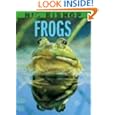
Frogs by Nic Bishop
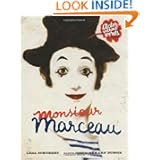
Monsieur Marceau by Leda Schubert
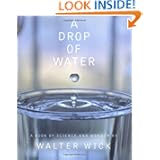
A Drop of Water by Walter Wick
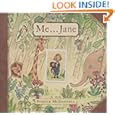
Me... Jane by Patrick McDonnel
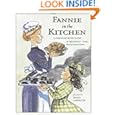
Fannie in the Kitchen by Deborah Hopkinson
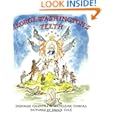
George Washington's Teeth by Deborah Chandah
The Grand Mosque of Paris: A Story of How Muslims Rescued Jews during the Holocaust
by Karen Ruelle
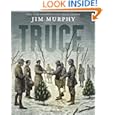
Truce: The Day the Soldiers Stopped Fighting by Jim Murphy
(Can I make a special plea for this one? Adults should read this book. I found it so moving. Such a wonderful story about peace and brotherhood even in the midst of the brutality of war.)
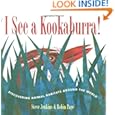
I See a Kookaburra: Discovering Animal Habitats Around the World by Steve Jenkins.
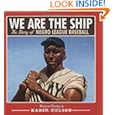
We are the Ship: The Story of Negro League Baseball by Kadir Nelson
Please, please, let's not forget what it truly means to be engaged!
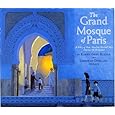
No comments:
Post a Comment